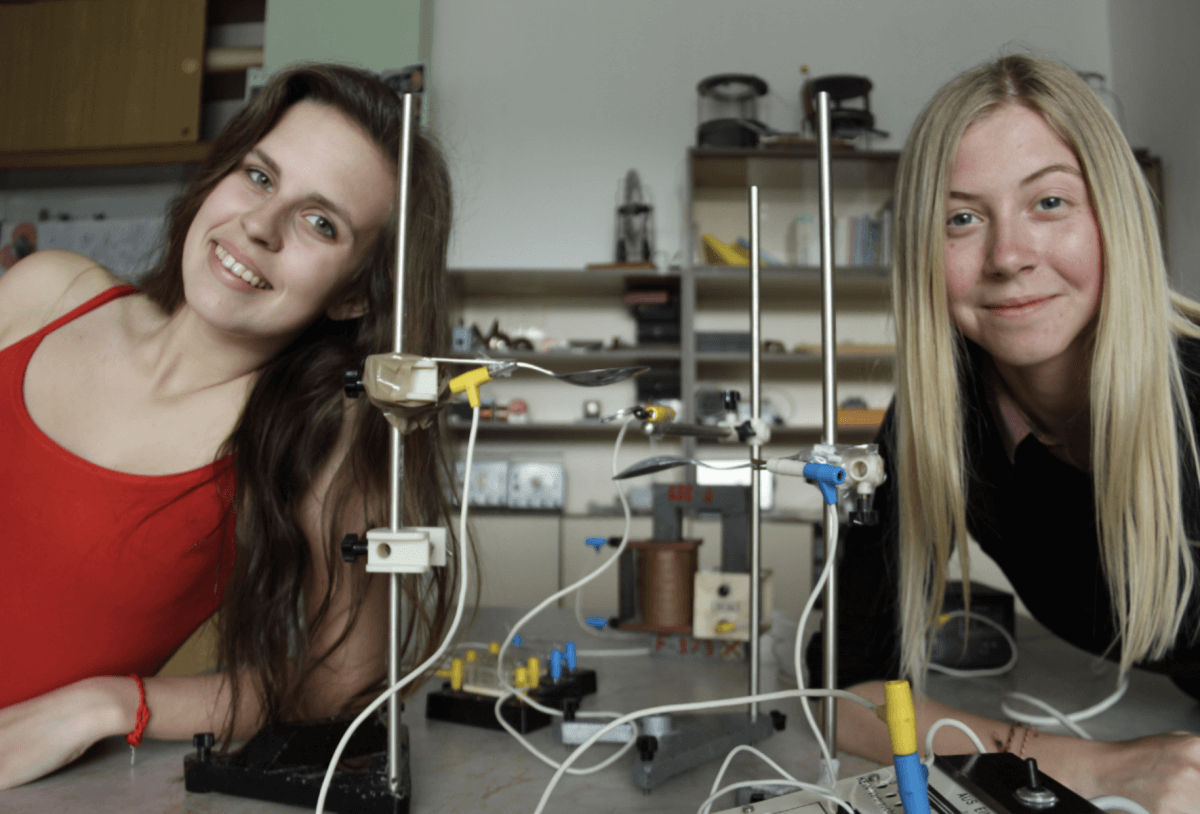An interview with five women scientists, moderators of the IPPOG Masterclass on the International Day of Women and Girls in Science
Fabiola Cacciatore, 11 February 2022
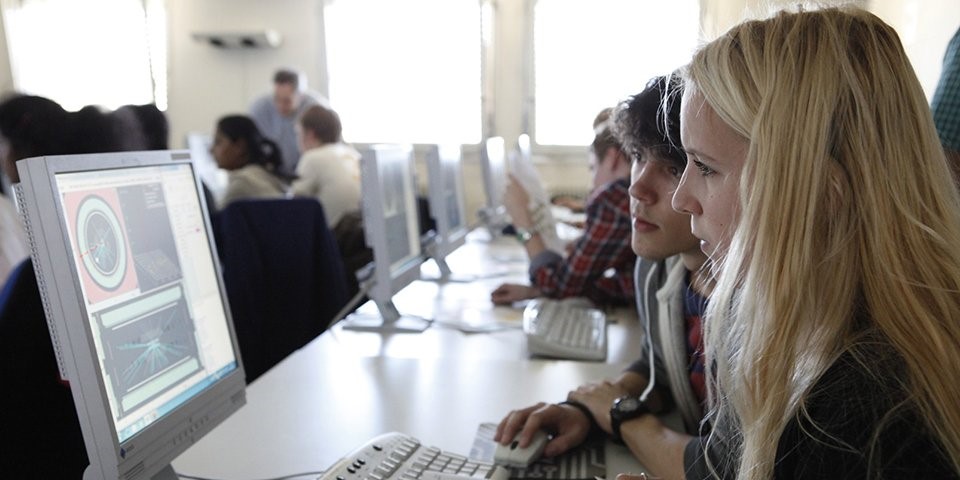
In 1993, Cornell University science historian Margaret Rossiter coined the term “Matilda Effect” to describe the lack of recognition given to the contributions of women scientists. The effect was named after suffragist and abolitionist Matilda Joslyn Gage, whose 1893 essay “Woman as an Inventor” protested the common assertion that “woman… possesses no inventive or mechanical genius.”
Over the years, this phenomenon has seen many women, especially in the scientific sector, being deprived of the attribution of a professional contribution. One could easily construct a long list of names of great female minds deprived of prizes, awards, promotions and more, just because their presence in science was not on a par with that of a man doing equivalent work.
Think of Jocelyn Bell, they have taken a Nobel Prize from her hands only because she is a woman and only a student!
A sense of injustice and disparity still surrounds many women in science. This was one of the key motivations for the creation by the United Nations, in 2015, of the International Day of Women and Girls on Science. Each year on this date, the International Particle Physics Outreach Group (IPPOG) organises Physics Masterclasses in institutions around the world.
"It is society that must change its approach and break stereotypes."
- Despina Hatzifotiadou
Moderators for these Masterclasses meet online with the students at the end of the session to discuss their results and lessons learned. This is also a chance for the students to meet active scientists, ask questions, and learn about career opportunities from the role models who volunteered their time to help out.
Earlier this week, we interviewed five of today’s moderators, all successful women scientists, to get their opinions on their ongoing efforts to battle the Matilda effect on this very special day. Here are what Sonia, Ana P., Ana V. B., Despina and Tara, think about this topic.
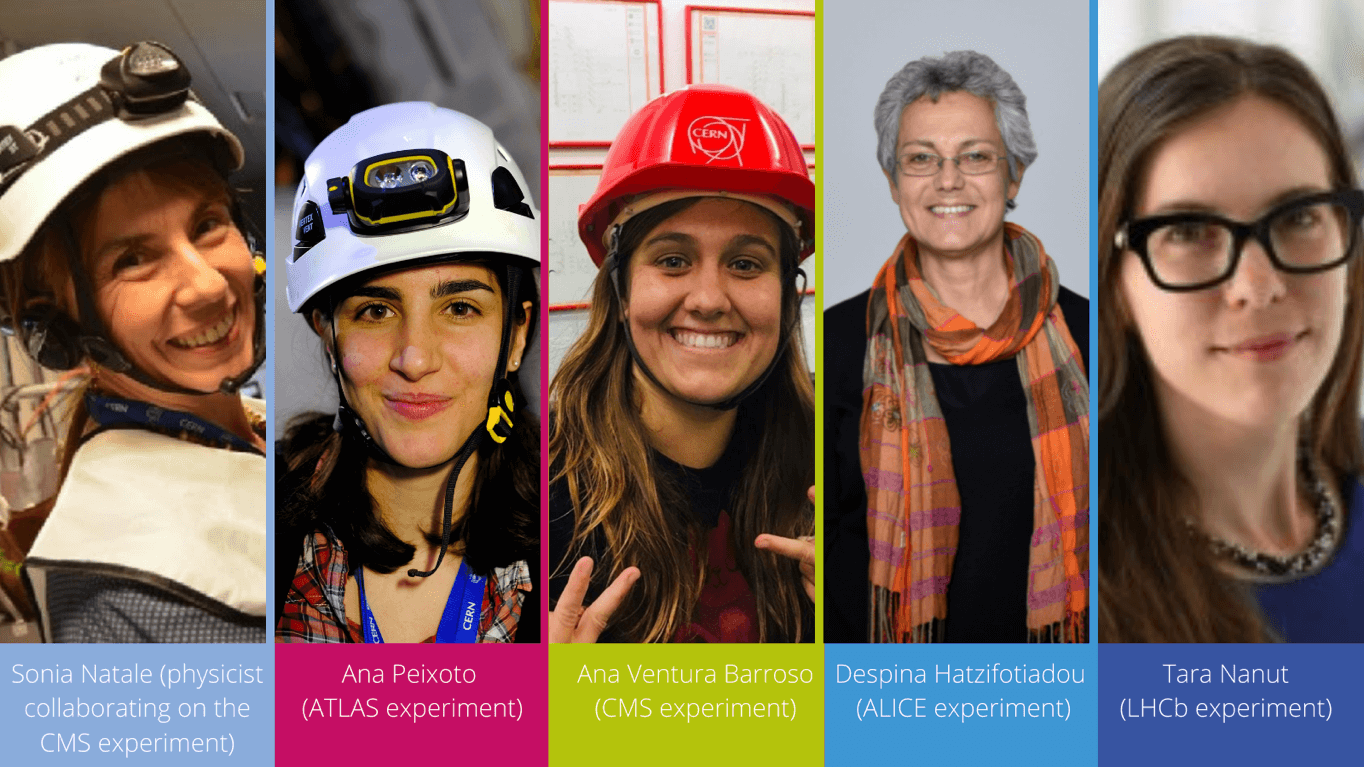
1. What is World Day of Girls and Women in Science?
“An awareness day that was appointed in 2015 by the United Nations and which aims to make the gap smaller. Encouraging, raising awareness, changing the attitude of society towards women in science. It’s a day full of meanings, but above all of objectives,” says Despina Hatzifotiadou (ALICE experiment).
“This day serves to make a sort of progress report, to update us and the world on the evolution of this issue. Reducing the topic to a single day, so too a week, is reductive. Let's say that we need to see how far we have gone compared to the past and I find useful to do it on a regular basis, as in this case, by appointing a day dedicated to women and girls in science,” Sonia Natale (physicist collaborating on the CMS experiment).
“This special day is an opportunity to promote the study of science by everyone and mostly by women."
- Ana Peixoto
“For me this day is not one for celebrating but to work. As a woman in science I've seen the inequalities that we (women) have to face during our daily life. It is a day to show the world, but most importantly the girls and young women, that they can be whatever they want, they can have an important role in developing the technologies and science in the future. We need to ensure that they have the same opportunities to pursue a STEM career since the beginning. In my opinion the first and most important step is to make scientist women visible to these young girls. When you see it happening you can desire for yourself,” Ana Ventura Barroso (CMS experiment).
“The International Day of Women and Girls in Science is a day on which we remind everyone of the gender imbalance in science and that we must actively work to improve this. We do the active work on this day: for example, the dedicated IPPOG masterclasses for girls in high schools. These have the chance of addressing the problem at its root and to reach a critical group – girls on the doorstep of deciding about their studies. If we strive toward a larger fraction of women in science, that’s where the change must start, with more female students in STEM college paths,” Tara Nanut (LHCb experiment).
“This special day is an opportunity to promote the study of science by everyone and mostly by women. Such celebration can and should be propagated especially within the schools at all levels (not only in high schools),” Ana Peixoto (ATLAS experiment).
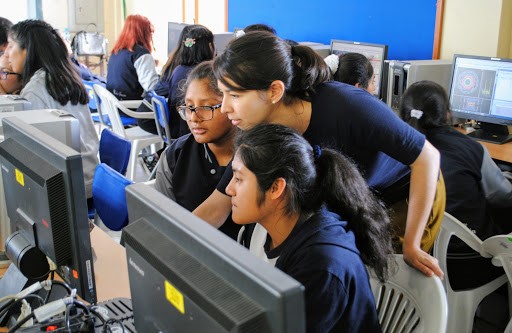
2. Physics is often considered a discipline for men... why in your opinion?
Unanimous answer: to answer this question we have to go back over the years (“not so many if you think about it… less than 100 years” specifies Despina) and re-evaluate the roles that society gave to women and men. “Although it can still occur at the moment in a few countries of the world” (Ana P.), this situation is slowly changing. Obviously, the possibility of studying was less for girls, unlike men who were instead pushed to study and make a career without having to pay too much attention to the family. Changing the idea of an entire society that for years has lived with prejudices and unequal social patterns is something that takes time and "that is why change cannot happen quickly, but slowly from the bottom up." (Tara).
All over the world there is this bizarre theory that attributes this almost golden image of the Red Cross to women. Women, according to some social schemes, are more inclined to take care of others and therefore are often led to choose jobs where, in some way, there is attention for other human beings. As Ana V. B. herself says during the interview: “we live in a society where there are still gender roles. It is considered in general the women are meant to take care of people, that's why they are more encouraged to do jobs as nursing or teaching.” She couldn't have said it in better terms.
3. Do you think it is still difficult for a woman to make a career in science?
Here too, the interviewees expressed very similar opinions. Some told episodes experienced in first person, others by friends and/or colleagues, but all agree that for a woman, making a career in science (even in other fields), remains an obstacle that requires a lot of strength, often sacrifices and a lot of courage. As Despina said, “women are required to be more courageous than men in many situations. Even today, supervisors and/or managers are still heard to tell girls ‘pregnancy could have negative effects on your work’ and it definitely requires a strong dose of courage, whatever the choice a woman wants to make”. But fortunately, things are slowly changing. "The direct biases from employers regarding employee gender are much rarer these days - a good thing." (Tara) And we can only agree with her! Things are changing in most sectors, giving more importance to the skills, to the work of a person, regardless of gender. It is a great evolutionary step towards a society that sees women and men on the same level in the workplace.
“In some countries is easier than others, it also depends on your immediate surrounding (family and friends),” says Ana V. B., “and most of the power positions are still held by men. To give you an idea of the numbers at CERN, around only 20% of the employees are women,” she adds. In this scenario, the problem must be traced back to the fact that women who study physics are still a minority. So it is in high school that the question arises and it is there that we must begin to act with passion and to educate students (boys and girls) in science subjects.
students and female students since primary school. Fortunately, there are living examples, such as our interviewees, who can bring hope and knowledge into schools. Making a career in STEM is complicated for a woman. “Obviously” says Ana P., “there are still challenges to be faced in order to have the ideal scenario, but I think we should demonstrate that it is possible to have a career in science and profit from a diverse scientific community.”
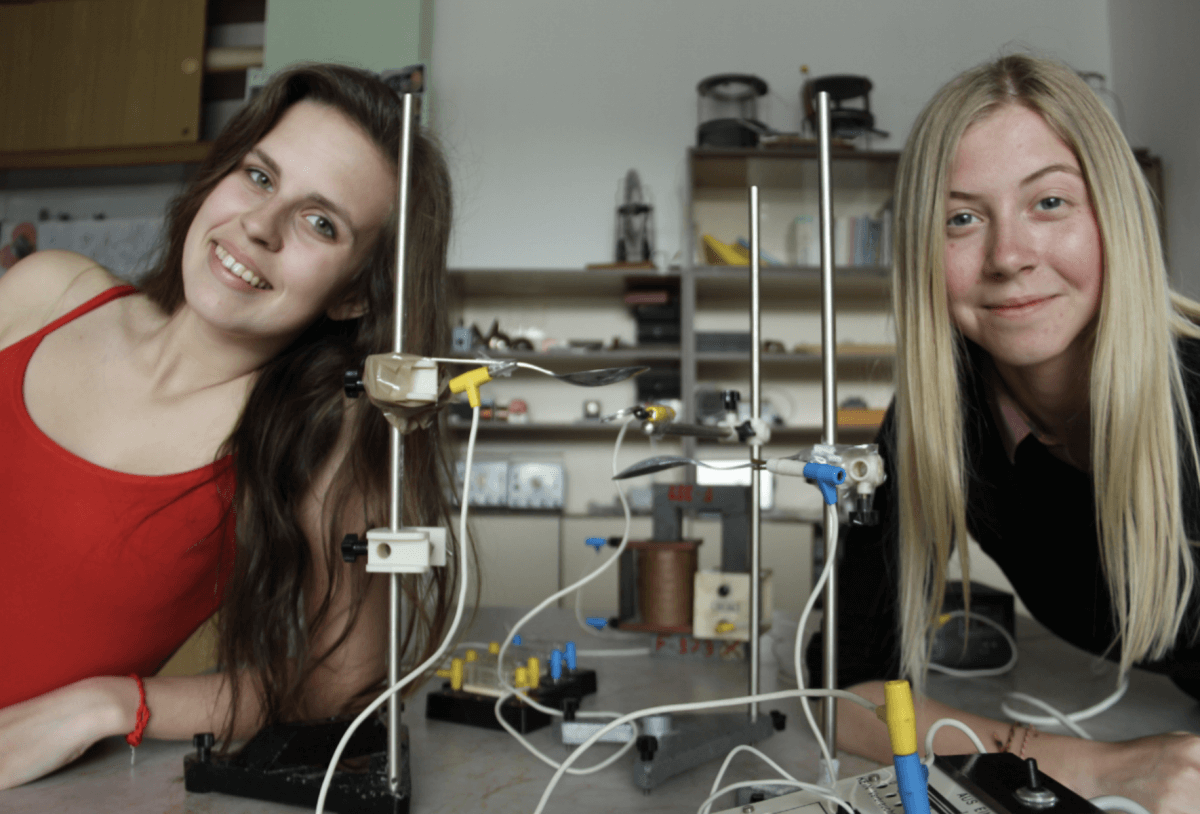
4. Who are the women of science girls can refer to?
From Marie Curie, the first woman to win the Nobel Prize in Physics (recalled by Despina and Ana P.), to Emilie du Chalet, the mathematician and physicist who translated Newton's principles into French, and Jocelyn Bell Burnell. Madame de Staël a woman who didn’t study science, but broke the rules by challenging the prejudices of her time, a fearless literary champion. Or even the mathematics Emmy Noether who lived a life struggling to teach maths and succeeding only after many sacrifices and compromises. Her theorem (Noether's Theorem) was also appreciated by Einstein and is still fundamental today (mentioned by Sonia). Obviously, among the better-known names and one to add one day to history, Fabiola Gianotti cannot be missed. “She is the Director General of CERN, which is a big step. She’s the first woman to be in such an important position and, besides that, she's a great physicist,” Ana V. B. adds. In fact, we take this opportunity to note that Dr. Gianotti is recognised around the world, not only as the first Director General of CERN, but also the first of any to be re-elected to a full second term, demonstrating the value of placing women in leadership roles and establishing another important step forward.
5. Does this day serve to sensitise girls to study science subjects or to sensitise men to the presence of female scientists?
This last, somewhat provocative question was also answered almost unanimously by our scientists, but at the same time with various shades of opinions.
“It is my hope that it does both. While we are still faced with the situation of mostly men at the top in scientific fields, it’s paramount to remind girls that this present-day imbalance is a consequence of practices in the past that have changed, and need to change further. On this day, our initiatives remind girls of this fact and encourage them to consider a future in science - while also reminding men, still often in charge of things, that such initiatives are needed and require their support too.” - Tara
“Both! It is society that must change its approach and break stereotypes. This day is definitely useful for both.” - Despina
“More than gender discrimination, I would speak of discipline discrimination. It still happens very often that to a girl who decides to study physics is told “Oh really? Are you sure dear?" while to a boy “Bravo! Good luck with your career!." This day should help to overcome this obstacle first, once the discrimination between the disciplines of knowledge is eliminated, things will certainly improve and girls will have less doubts about tackling science subjects.” – Sonia
“For me this day is for girls made by women. The main focus is to show them that they can be scientist if they want. That we exist and we are happy with our choices and of course that our male colleagues respect us and support us.” - Ana V. B.
“Ideally, this day would serve both. Although the most important mission is to give confidence and motivation to the girls to study science, it is also useful to spread the message that both boys and girls can and should have the same possibilities to contribute to scientific discoveries and advancements.” - Ana P.
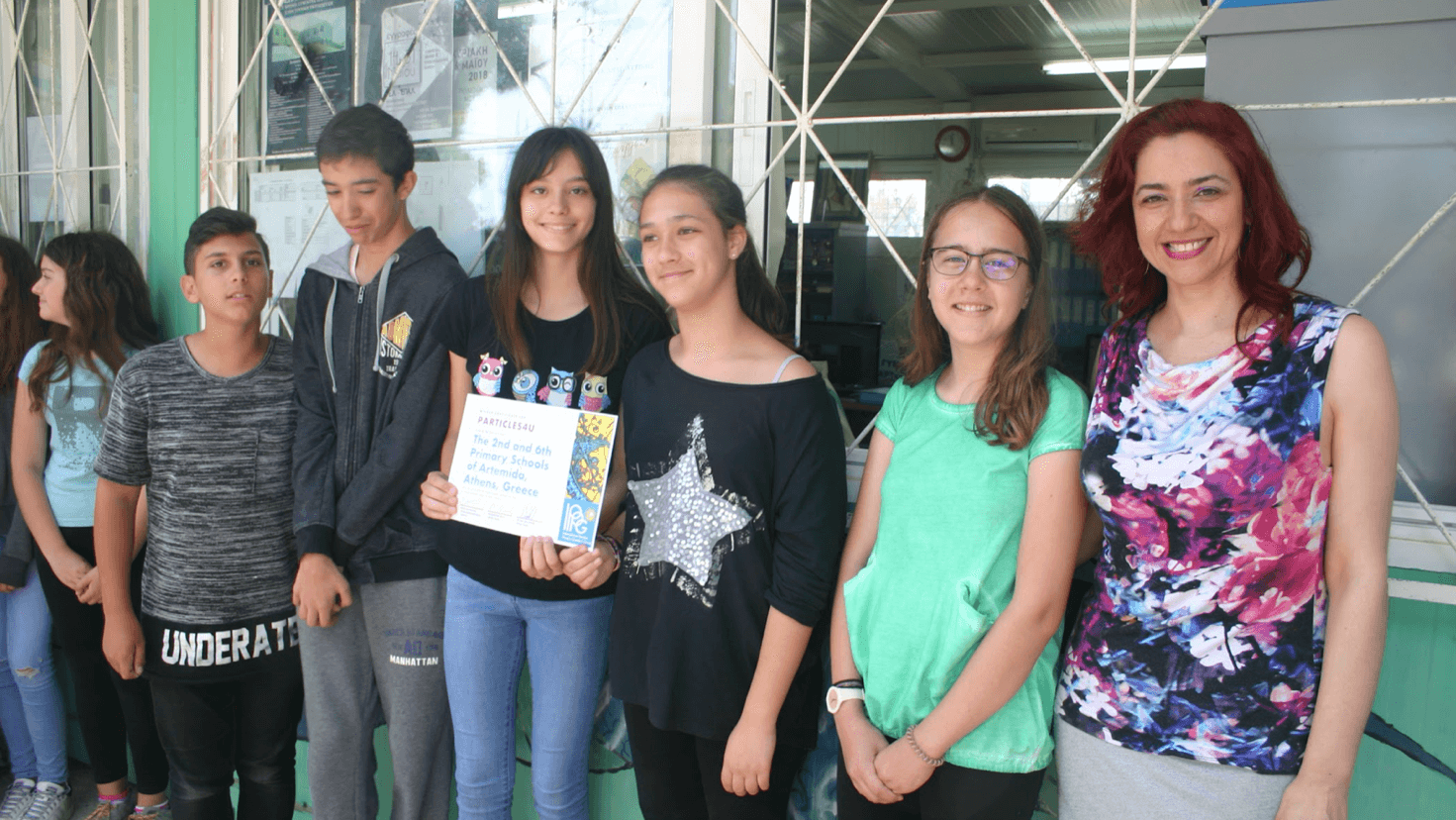
In conclusion, we can say that today is a special day. A new day served to draw attention to an ever-current theme. There is progress and we can see it. In fact, although still low, the number of girls who choose to follow a career in the STEM disciplines has been increasing. And this is very good news! Perhaps one day we will no longer need days like these to remind us that science belongs to everyone and it is for everyone, for now we need it to help overcome current clichés.
We want to thank the moderators who have dedicated their time to answer our questions and who commit themselves daily to carry out scientific research. Also, a big thank you to all the scientists who will be dedicating their time and effort to the running of the Masterclasses. And, last but not least, a big wish to all the girls who are following the Masterclass today. Wherever you are connected, whether from home or from your schools, remember that science needs you as you need it. Only with your diverse ideas and strong capabilities in research will we be able to solve the questions of our universe,
Happy International Day of Women and Girls in Science to all of you, women and girls of science, past, present and future!

